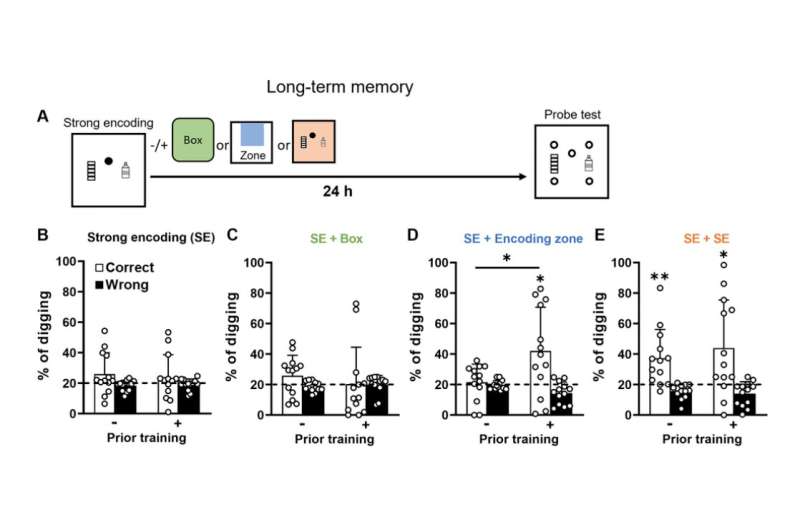This article has been reviewed according to Science X's editorial process and policies. Editors have highlighted the following attributes while ensuring the content's credibility:
fact-checked
proofread
Cognitive rescue in aging through prior training

A new research paper titled "Cognitive rescue in aging through prior training in rats" has been published in Aging.
Cognitive decline in spatial memory is seen in aging. Understanding affected processes in aging is vital for developing methods to improve well-being. Daily memory persistence can be influenced by events around the time of learning or by prior experiences in early life.
Fading memories in young people can last longer if a novel event is introduced around encoding, a process called behavioral tagging. In this new study based on this principle, researchers Alexandra Gros and Szu-Han Wang from The University of Edinburgh asked what processes are affected in aging and if prior training can rescue them.
"Here we asked if cognitive training in young and midlife would improve cognitive aging and which elements of the cognitive processes at old age are preferentially protected through such training," the researchers write.
Two groups of aged rats received training in an appetitive delayed matching-to-place task. One of the groups had additionally received prior training of the same task in young and in midlife, constituting a longitudinal study. The results showed long-term memory decline in late aging without prior training. This would reflect affected encoding and consolidation.
On the other hand, short-term memory was preserved and novelty at memory reactivation and reconsolidation enabled memory maintenance in aging. Prior training improved cognition by facilitating task performance, strengthening short-term and intermediate memory, and enabling encoding-boosted long-term memory. Learning ability, short-term memories, motor and motivation functions remained intact in older age, suggesting a phase when memory-associated processes are compromised before apparent navigation or learning deficits in advanced aging. Overall, the study's findings suggest a selective impairment in encoding for long-term memory formation in early aging and an additional impairment in consolidation in later aging.
"Prior training shows profound benefits in cognitive aging and it can provide a translatable model to simulate human cognition, which is built upon lifelong experiences," the researchers conclude.
More information: Alexandra Gros et al, Cognitive rescue in aging through prior training in rats, Aging (2023). DOI: 10.18632/aging.204808





















